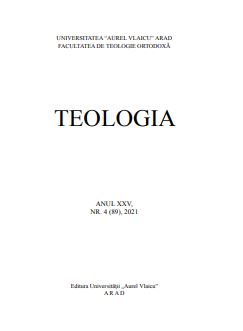The Reception of Father Stăniloae’s Trinitarian Theological Thinking in the German Space and Its Meanings
The Reception of Father Stăniloae’s Trinitarian Theological Thinking in the German Space and Its Meanings
Author(s): Ioan TulcanSubject(s): Christian Theology and Religion, Translation Studies, Sociology of Religion
Published by: Editura Universității Aurel Vlaicu
Keywords: theological thinking; translation of Father Stăniloae’s work; theological dialogue; Trinitarian thinking; reception of theological thinking; promotion of inter-Christian relations;
Summary/Abstract: Father Stăniloae was one of the most representative Christian thinkers of the 20th century. His theological personality became more and more known in his country – Romania – and abroad. This happened because his most representative works were translated into languages of international circulation: French, English, and German. Secondly, for the fact that the Romanian theologian participated in the theological dialogues of Orthodoxy with the Roman Catholics and the Protestants; then, he gave several lectures in various Western university centers. His theological thinking had an important impact in the German space. What particularly attracted German theologians’ attention was the fact that Father Stăniloae’s Trinitarian thought encompasses and orders his entire theological thought. Rightly, one of these German theologians stated that Dumitru Stăniloae always thinks in a trinitarian way. His theological thinking inspired the theological thinking of some German theologians, who came to consider, for example, the filioque issue as superfluous and dangerous for the faith. But many other theological themes acquired a different perspective in their thinking through the theological contact with the thinking of father Stăniloae.
Journal: Teologia
- Issue Year: 95/2023
- Issue No: 2
- Page Range: 45-56
- Page Count: 12
- Language: English

